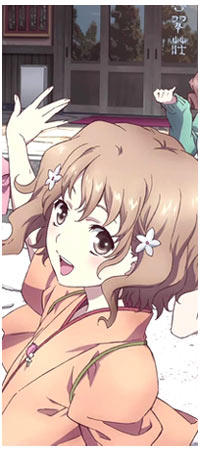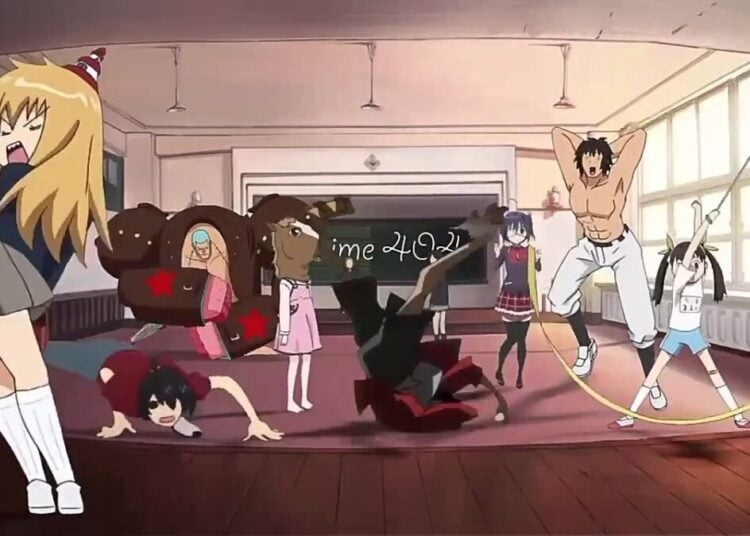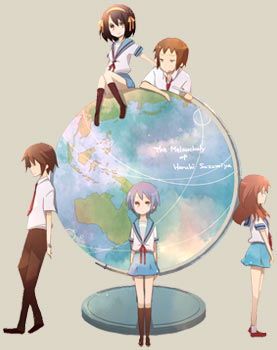It’s funny how words are perceived by people in different ways. My wife asked me how to say the word meinichi in English, and I told her, “That’s ‘the anniversary of a person’s death.'” She was shocked. “How can you use the word ‘anniversary’ for that? Anniversaries are happy times, not solemn occasions for family to remember loved ones.” When words are borrowed from one language to another, their meanings change slightly to fit the needs of the new group, and in this case only the happy, celebratory meaning of “anniversary” was brought over. In the new anime Hanasaku Iroha, the main character is told she must go live with her grandmother, and she says, “To live in a Japanese inn, that’s very dramatic!” However, this word doesn’t mean the same thing to the Japanese as it does to you and me: doramachikku is closer in meaning to “just like a story in a TV drama.” (They also have an odd tendency of taking the tic (pronounced “chikku“) ending from “dramatic” and putting it onto other slang words, like otome-chikku “girly” or otaku-chikku “fanboyish.”) Words meaning different things isn’t limited to English. I’ve heard that Chinese are often surprised at the Japanese use of the kanji matsuri (祭), which means festival in Japan, but is used for funerals in China.

Words “feel” different in different languages.















